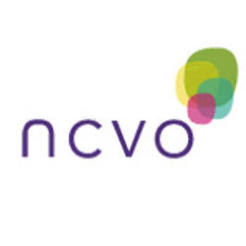Better volunteering support, better commissioning and more grant funding are policy priorities for the voluntary sector, according to respondents to an NCVO consultation which took place over the last eight months.
The NCVO consultation, called the 2015 Project, was intended to establish what policy priorities it should focus on in its manifesto. It included an online consultation which received 223 responses, a series of events and focus groups.
More support for existing volunteering and more understanding of good volunteer management were high priorities, the NCVO said.
“One of the clearest messages we’ve received has been that ‘less is more’ when it comes to government policy on volunteering,” the NCVO said in a feedback document summarizing the responses. “What would be most appreciated is more support for the volunteering already taking place.
“A lack of understanding of what volunteering actually is – the roles volunteers undertake, and the real cost to volunteering – has been cited as a concern for the sector, with many saying neither politicians, businesses or the public seem to really understand the breadth of volunteering.
“Some in the volunteering world have told us that even the charities they work for don’t always seem to recognise the importance of proper volunteer management.”
It said that confusion over volunteering was a particular problem with Jobcentres.
“We’ve heard that some claimants have been told they must stop or cut down on their volunteering to continue to receive benefits, whilst other claimants have felt that they have been mandated to ‘volunteer’ in order to continue to receive benefits,” the NCVO said.
The NCVO also reported widespread concern over poor commissioning practice.
“Specific concerns in public service commissioning include a lack of pre-procurement dialogue, and a lack of understanding on the part of commissioners of the voluntary sector and the types of organisations and services that we provide,” the document said.
It said charities, especially smaller ones, were being deterred by “poorly designed and inflexible service specifications and disproportionate bidding requirements”, and by “contracts getting larger in scale and more generic”. It said payment by results was “unworkable for many” because of the level of capital required.
It said another big worry was a reduction in grant funding.
“Not all services can be funded through individual donations or can be sold, and that there is a lack of recognition of this from funders as well as local and national governments,” the NCVO said. “You said, and we agree, that there are some cases where it is simply more efficient to fund via grants.”
And it said many charities were concerned over the effects that difficult economic circumstances were having on their beneficiaries.
“It is clear that many of the people our sector supports are struggling in the economic environment, and this has affected the health of some charities as demand on them increases,” the feedback document said.
It said many members were also concerned about “negative political and public rhetoric around welfare and poverty” and that this could lead to “increased stigmatism of the most vulnerable”.









